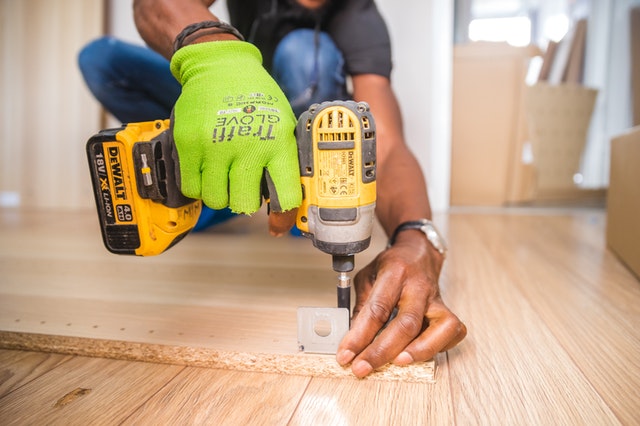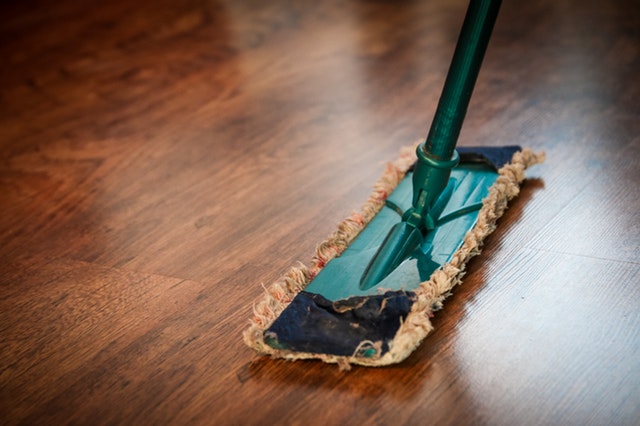
As a property owner, can you relate to this scenario? A tenant has moved out of your rental property and you arrive to inspect the location. You expect to spend a couple of hundred dollars on minor cleaning and touch-ups, such as replacing or repairing worn-out carpets, scuffed walls, aged-looking stovetops and nail holes. Though, the reality you face is weeks of work and thousands of dollars spent on damage repair.

There is a point where the tenant's mark on your property leaves the realm of wear-and-tear and becomes an actual damage to the asset. When this happens, the property owner is left with the possibility of losing on three fronts.
- The property doesn't generate rental income between the tenant's departure and the time it takes to do the repairs.
- Depending on the degree of damage, the costs for cleaning and repair can be thousands of dollars.
- Damage on an asset may be severe enough to lower its market value. And if the owner of the damaged property wants to sell in the future, they may be forced to sell lower than they should.
Tenant damage to property is common, but as a property owner, you can reduce your chances of it happening to you. The solution begins with prevention.
The following are practical steps that you can take to avoid tenant damage. Note that these guidelines and recommendations are not completely fail-safe. That said, they will help you reduce the risk of tenant damage to your property.
Tenant Screening
Finding a good tenant is your first line of defense against property damage. Humans are creatures of habit, so tenants' past behaviors are a good predictor of their future actions. A potential tenant's rental history can yield a wealth of information about them.
Talking to previous landlords may also help unearth likely problems. Look for prior evictions, but most importantly draw up your own criteria for the kind of tenant you want in your property.
Tenant Education and Orientation
Educating the tenant on how to look after your property helps them better understand how to care for it. Also, this communication will allow them to view you as an ally versus an opponent. To make this process easier, you can offer a simple checklist that explains the tenant's responsibilities.
Good Landlord-Renter Relationship
Conflict with renters often leads to tenant damage. Frequently, damages will go unreported because tenants want to avoid confrontation with the owner. As a property owner, you should place value on establishing a good relationship with your tenant so that they feel comfortable approaching you.

Substantial Security Deposit
Most tenant damage is due to negligence, rather than malice. Including a substantial security deposit as one of the conditions for renting the property is a good idea. It will give renters an inventive to care for the property because they will want to get that deposit back.
A Baseline of the Property's State
Sometimes a security deposit is not enough because tenants will dispute damages. To avoid this, you can take photos of the property before tenant move-in, preferably with the tenant present. Include these photos in the lease agreement to remove any ambiguity. The tenant should also sign a move-in form that details the state of the property. This becomes your baseline for the property.
Lease Agreements
The lease agreement needs to be explicit about behaviors that are likely to damage the property. Also, it should explain, in detail, the condition you expect to receive the property back in. And if you allow pets within the premises, there should be clear guidelines for how pets' damage to the property will be handled.
Maintenance Before Tenant Move-in
Property owners set the standard for how the property should be treated. If the property was well-cared for before the tenant's arrival, then the tenant will be more likely to follow that example.
Maintenance After Tenant Move-in
Regular inspections and yearly professional cleaning are essential. Inspecting at fixed intervals keeps tenants on their toes and helps you catch damages before they get out of hand. Plus, yearly professional cleaning will save your flooring from excessive wear and tear. Moreover, it will create a model for how the tenant should look after the property.

Bottom Line
Overall, there are two critical things State Property Management LLC believes you must keep in mind:
- The property belongs to you and any damage to it is yours alone to bear.
- Responsibility for its care ultimately rests with you.
Adopting this mindset will allow you to take proactive steps towards preventing tenant damage and protecting your asset, as well as optimizing your property management strategy with the support of State Property Management.